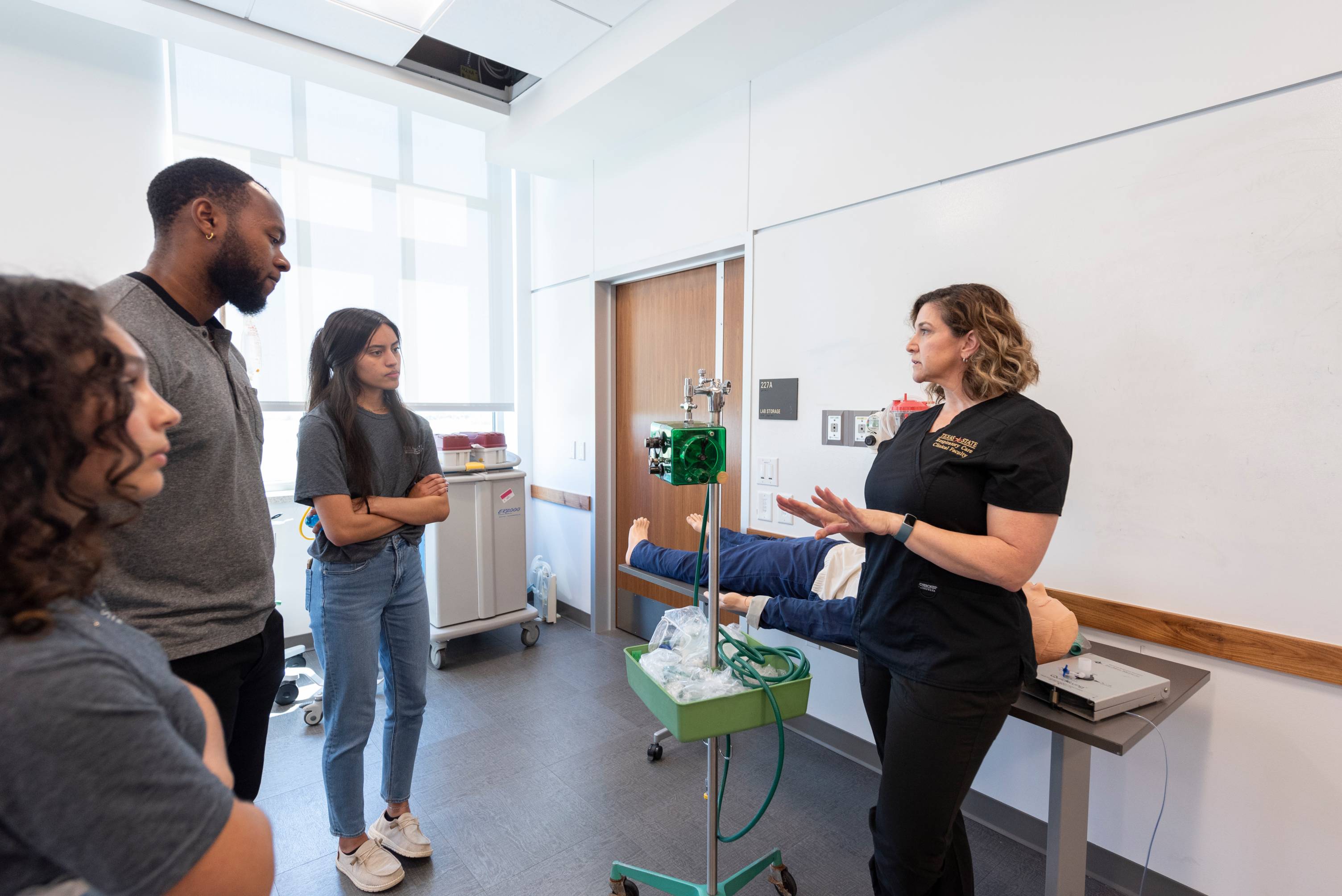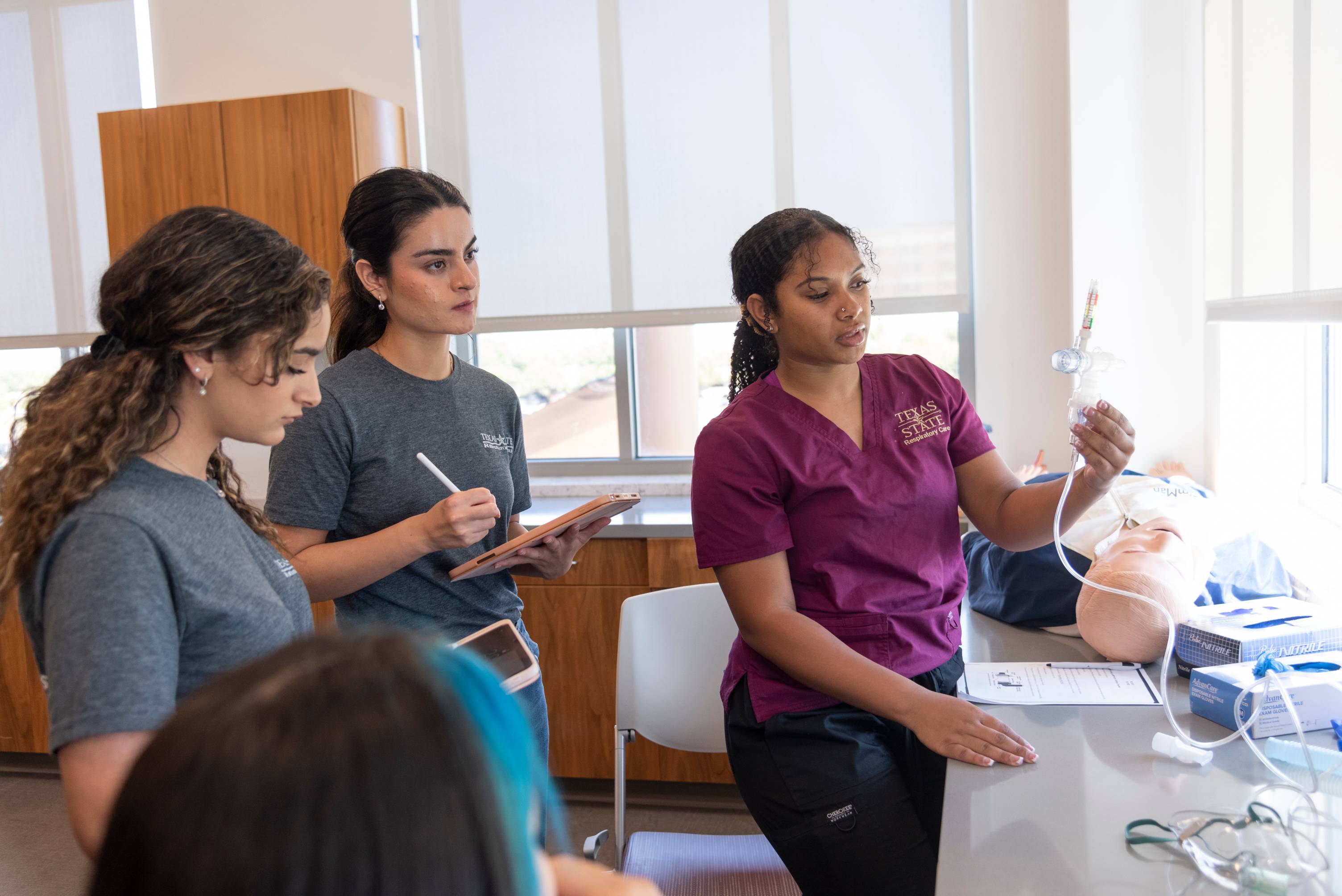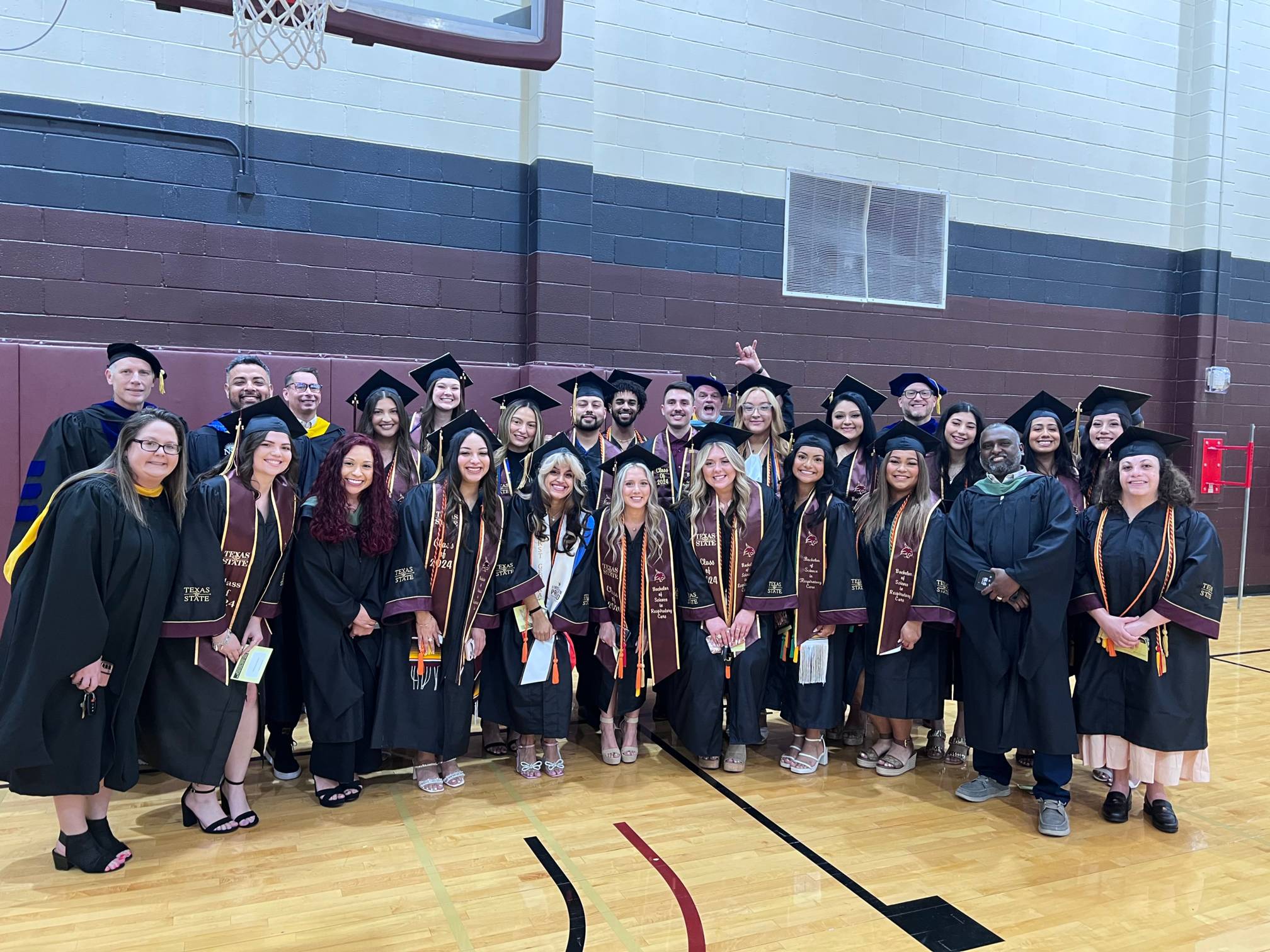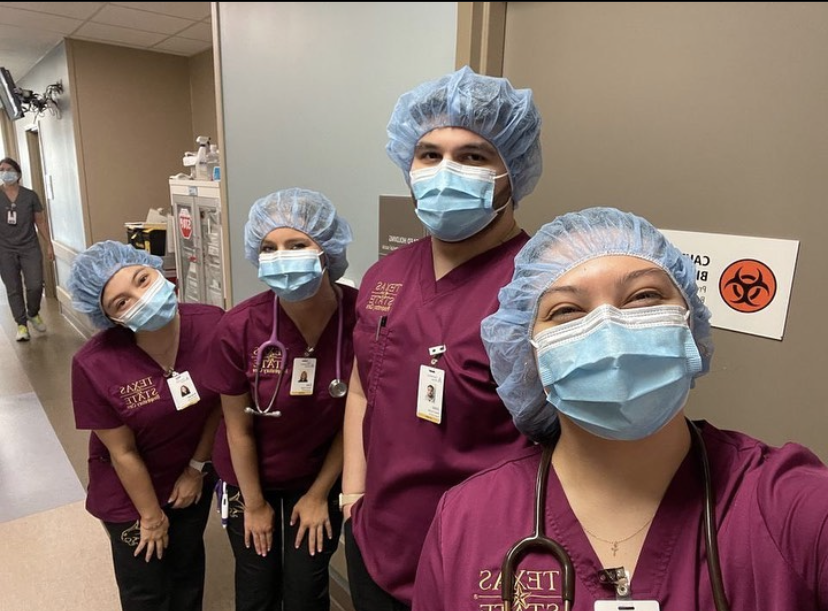Click on the button below to learn more about the application process!
What is a Respiratory Therapist?
Respiratory care providers diagnose and treat breathing issues and lung disorders. The bachelor of science in respiratory care (B.S.R.C.) degree gives students a foundation in cardiopulmonary care, including supervised patient care during clinical rotations.
Career Prospects
The B.S.R.C. degree prepares students for careers as respiratory therapists providing patient care in hospitals, pediatric clinics, extended care facilities, sleep labs and more. Through clinical rotations and the opportunity for an internship in a chosen specialization, students gain professional experience before graduation. Texas State respiratory care graduates often move up quickly due to their specialized training. Because fewer than 10 percent of respiratory therapists in the United States have a B.S.R.C., this degree makes graduates competitive in the workforce.
Program Structure and Topics
The B.S.R.C. program is a competitive 120-hour degree that includes clinical rotations in a variety of healthcare settings. The first two years of the degree (university core courses and prerequisites) are completed in San Marcos. By May of their sophomore year, students apply for admission into the fall B.S.R.C. class or cohort. For their last two years (junior and senior years), a cohort of 44 respiratory care students moves through the sequential curriculum together on the Round Rock Campus. Each course is a prerequisite for the next semester.
Course work covers:
- Clinical care skills
- Pulmonary function testing
- Cardiopulmonary anatomy and pathology
- Hemodynamics
- Respiratory therapeutics
- Technology and instrumentation
- Research and data analysis
Marketable Skills:
- Think critically
- Analyze and solve problems
- Communicate clearly and effectively
- Synthesize and disseminate complex information and apply it to new contexts
- Find solutions to problems and justify them
- Respond appropriately to constructive feedback
- Collaborate on projects
- Identify goals/tasks and create a realistic timeline for completion
- Present before groups
- Ability to think and reason ethically
Clinical rotation settings include:
- General medical and surgical units
- Neonatal and pediatric intensive care units
- Adult medical and surgical critical care units
- Transplant intensive care units
- Pulmonary function diagnostics
- Polysomnography (sleep lab diagnostics)
Accreditation
The Texas State Bachelor of Science in Respiratory Care program (CoARC #200197) is fully accredited by the Commission on Accreditation for Respiratory Care (CoARC). CoARC accredits respiratory therapy education programs in the United States. To achieve this end, it utilizes an “outcomes based” process. Programmatic outcomes are performance indicators that reflect the extent to which the educational goals of the program are achieved and by which program effectiveness is documented.
Graduates are eligible for the national board exams administered by the National Board for Respiratory Care (NBRC).



